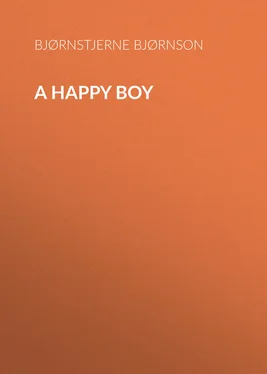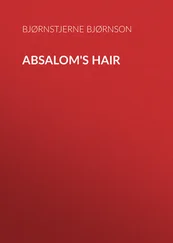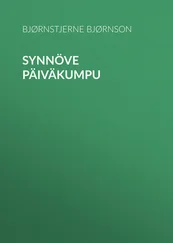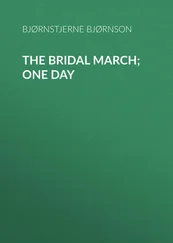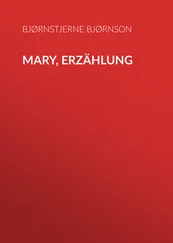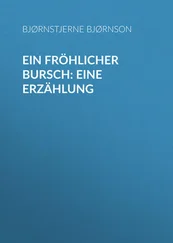Bjørnstjerne Bjørnson - A Happy Boy
Здесь есть возможность читать онлайн «Bjørnstjerne Bjørnson - A Happy Boy» — ознакомительный отрывок электронной книги совершенно бесплатно, а после прочтения отрывка купить полную версию. В некоторых случаях можно слушать аудио, скачать через торрент в формате fb2 и присутствует краткое содержание. Жанр: foreign_prose, foreign_antique, на английском языке. Описание произведения, (предисловие) а так же отзывы посетителей доступны на портале библиотеки ЛибКат.
- Название:A Happy Boy
- Автор:
- Жанр:
- Год:неизвестен
- ISBN:нет данных
- Рейтинг книги:5 / 5. Голосов: 1
-
Избранное:Добавить в избранное
- Отзывы:
-
Ваша оценка:
- 100
- 1
- 2
- 3
- 4
- 5
A Happy Boy: краткое содержание, описание и аннотация
Предлагаем к чтению аннотацию, описание, краткое содержание или предисловие (зависит от того, что написал сам автор книги «A Happy Boy»). Если вы не нашли необходимую информацию о книге — напишите в комментариях, мы постараемся отыскать её.
A Happy Boy — читать онлайн ознакомительный отрывок
Ниже представлен текст книги, разбитый по страницам. Система сохранения места последней прочитанной страницы, позволяет с удобством читать онлайн бесплатно книгу «A Happy Boy», без необходимости каждый раз заново искать на чём Вы остановились. Поставьте закладку, и сможете в любой момент перейти на страницу, на которой закончили чтение.
Интервал:
Закладка:
She sat tearing up the grass with her hands, and said, "I was not allowed to keep it; grandfather is up there waiting."
While the boy stood staring at her, a sharp voice from the road above called, "Well!"
Then she remembered what she had to do: she rose, walked up to Oyvind, thrust one of her dirt-covered hands into his, and, turning her face away, said, "I beg your pardon."
But then her courage forsook her, and, flinging herself on the goat, she burst into tears.
"I believe you had better keep the goat," faltered Oyvind, looking away.
"Make haste, now!" said her grandfather, from the hill; and Marit got up and walked, with hesitating feet, upward.
"You have forgotten your garter," Oyvind shouted after her. She turned and bestowed a glance, first on the garter, then on him. Finally she formed a great resolve, and replied, in a choked voice, "You may keep it."
He walked up to her, took her by the hand, and said, "I thank you!"
"Oh, there is nothing to thank me for," she answered, and, drawing a piteous sigh, went on.
Oyvind sat down on the grass again, the goat roaming about near him; but he was no longer as happy with it as before.
CHAPTER II
The goat was tethered near the house, but Oyvind wandered off, with his eyes fixed on the cliff. The mother came and sat down beside him; he asked her to tell him stories about things that were far away, for now the goat was no longer enough to content him. So his mother told him how once everything could talk: the mountain talked to the brook, and the brook to the river, and the river to the sea, and the sea to the sky; he asked if the sky did not talk to any one, and was told that it talked to the clouds, and the clouds to the trees, the trees to the grass, the grass to the flies, the flies to the beasts, and the beasts to the children, but the children to grown people; and thus it continued until it had gone round in a circle, and neither knew where it had begun. Oyvind gazed at the cliff, the trees, the sea, and the sky, and he had never truly seen them before. The cat came out just then, and stretched itself out on the door-step, in the sunshine.
"What does the cat say?" asked Oyvind, and pointed.
The mother sang,—
"Evening sunshine softly is dying,
On the door-step lazy puss is lying.
'Two small mice,
Cream so thick and nice;
Four small bits of fish
Stole I from a dish;
Well-filled am I and sleek,
Am very languid and meek,'
Says the pussie." 2 2 Auber Forestier's translation.
Then the cock came strutting up with all the hens.
"What does the cock say?" asked Oyvind, clapping his hands.
The mother sang,—
"Mother-hen her wings now are sinking,
Chanticleer on one leg stands thinking:
'High, indeed,
You gray goose can speed;
Never, surely though, she
Clever as a cock can be.
Seek your shelter, hens, I pray,
Gone is the sun to his rest for to-day,'—
Says the rooster." 3 3 Auber Forestier's translation.
Two small birds sat singing on the gable.
"What are the birds saying?" asked Oyvind, and laughed.
"'Dear Lord, how pleasant is life,
For those who have neither toil nor strife,'—
Say the birds." 4 4 Translated by H.R.G.
—was the answer.
Thus he learned what all were saying, even to the ant crawling in the moss and the worm working in the bark.
The same summer his mother undertook to teach him to read. He had had books for a long time, and wondered how it would be when they, too, should begin to talk. Now the letters were transformed into beasts and birds and all living creatures; and soon they began to move about together, two and two; a stood resting beneath a tree called b , c came and joined it; but when three or four were grouped together they seemed to get angry with one another, and nothing would then go right. The farther he advanced the more completely he found himself forgetting what the letters were; he longest remembered a , which he liked best; it was a little black lamb and was on friendly terms with all the rest; but soon a , too, was forgotten, the books no longer contained stories, only lessons.
Then one day his mother came in and said to him,—
"To-morrow school begins again, and you are going with me up to the gard."
Oyvind had heard that school was a place where many boys played together, and he had nothing against that. He was greatly pleased; he had often been to the gard, but not when there was school there, and he walked faster than his mother up the hill-side, so eager was he. When they came to the house of the old people, who lived on their annuity, a loud buzzing, like that from the mill at home, met them, and he asked his mother what it was.
"It is the children reading," answered she, and he was delighted, for thus it was that he had read before he learned the letters.
On entering he saw so many children round a table that there could not be more at church; others sat on their dinner-pails along the wall, some stood in little knots about an arithmetic table; the school-master, an old, gray-haired man, sat on a stool by the hearth, filling his pipe. They all looked up when Oyvind and his mother came in, and the clatter ceased as if the mill-stream had been turned off. Every eye was fixed on the new-comers; the mother saluted the school-master, who returned her greeting.
"I have come here to bring a little boy who wants to learn to read," said the mother.
"What is the fellow's name?" inquired the school-master, fumbling down in his leathern pouch after tobacco.
"Oyvind," replied the mother, "he knows his letters and he can spell."
"You do not say so!" exclaimed the school-master. "Come here, you white-head!"
"Oyvind walked up to him, the school-master took him up on his knee and removed his cap.
"What a nice little boy!" said he, stroking the child's hair. Oyvind looked up into his eyes and laughed.
"Are you laughing at me!" The old man knit his brow, as he spoke.
"Yes, I am," replied Oyvind, with a merry peal of laughter.
Then the school-master laughed, too; the mother laughed; the children knew now that they had permission to laugh, and so they all laughed together.
With this Oyvind was initiated into school.
When he was to take his seat, all the scholars wished to make room for him; he on his part looked about for a long time; while the other children whispered and pointed, he turned in every direction, his cap in his hand, his book under his arm.
"Well, what now?" asked the school-master, who was again busied with his pipe.
Just as the boy was about turning toward the school-master, he espied, near the hearthstone close beside him, sitting on a little red-painted box, Marit with the many names; she had hidden her face behind both hands and sat peeping out at him.
"I will sit here!" cried Oyvind, promptly, and seizing a lunch-box he seated himself at her side. Now she raised the arm nearest him a little and peered at him from under her elbow; forthwith he, too, covered his face with both hands and looked at her from under his elbow. Thus they sat cutting up capers until she laughed, and then he laughed also; the other little folks noticed this, and they joined in the laughter; suddenly a voice which was frightfully strong, but which grew milder as it spoke, interposed with,—
"Silence, troll-children, wretches, chatter-boxes!—hush, and be good to me, sugar-pigs!"
It was the school-master, who had a habit of flaring up, but becoming good-natured again before he was through. Immediately there was quiet in the school, until the pepper grinders again began to go; they read aloud, each from his book; the most delicate trebles piped up, the rougher voices drumming louder and louder in order to gain the ascendency, and here and there one chimed in, louder than the others. In all his life Oyvind had never had such fun.
Читать дальшеИнтервал:
Закладка:
Похожие книги на «A Happy Boy»
Представляем Вашему вниманию похожие книги на «A Happy Boy» списком для выбора. Мы отобрали схожую по названию и смыслу литературу в надежде предоставить читателям больше вариантов отыскать новые, интересные, ещё непрочитанные произведения.
Обсуждение, отзывы о книге «A Happy Boy» и просто собственные мнения читателей. Оставьте ваши комментарии, напишите, что Вы думаете о произведении, его смысле или главных героях. Укажите что конкретно понравилось, а что нет, и почему Вы так считаете.
